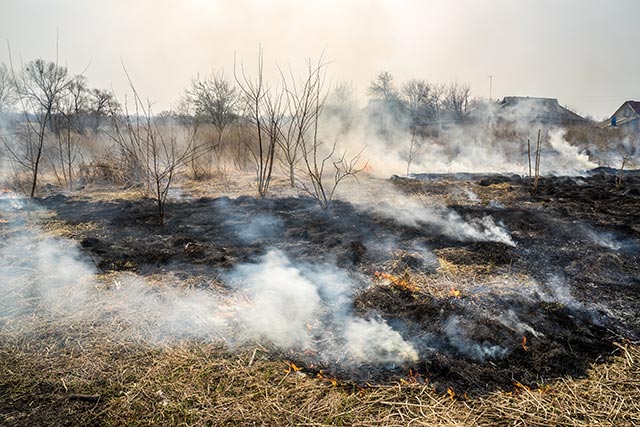Study suggests air pollution is killing more Africans than HIV/AIDS
11/11/2018 / By RJ Jhonson

A new study declares air pollution to be the top cause of death in Africa, with air-pollution-related health conditions killing more people than either AIDS or malaria.
The study revealed that as a whole, air pollution causes the premature death of more than 1.2 million people every year in Africa. In comparison, acquired immune deficiency syndrome (AIDS), one of the most notorious diseases in the continent, kill 760,000 Africans on average.
The findings were presented by Susanne Bauer, an Earth Institute affiliate who creates models of atmospheric composition at the Goddard Institute for Space Studies in NASA. She explains that one of the greatest sources of air pollution in the continent is biomass burning, a farming practice where the remnants of crops in fields are burnt.
The practice clears stubbles off the field and fertilizes the soil in time for the next batch of crops, but it presents a big environmental and health problem. It releases very fine particles into the air, most of which are harmful to the human body. The practice is so widespread in the region that sub-Saharan Africa is the third largest origin of biomass emissions in the world.
These particles are very tiny, about half as wide as a person’s red blood cells. Once inhaled, these particles become lodged in human airways, increasing the risk of developing various serious conditions, including lung cancer and other lung diseases, heart attack, stroke, and others.
To arrive at their figures, Bauer’s team combined a climate model and satellite data to create a map detailing the origin of biomass burning and where the smoke ends up. They also studied the distribution of gases and harmful particles from other sources, such as industry and nature. The data gathered were then entered into an economic health model that estimated the number of lives shortened by air pollution, taking into account factors including age distribution and the risk from other diseases.
The power of the elements: Discover Colloidal Silver Mouthwash with quality, natural ingredients like Sangre de Drago sap, black walnut hulls, menthol crystals and more. Zero artificial sweeteners, colors or alcohol. Learn more at the Health Ranger Store and help support this news site.
They found that although burning both forests and fields produced the greatest amount of air pollutants, it was only the third largest cause of air-pollution-related deaths, killing an average of 70,000 people in a year. This was because the practice of biomass burning typically occurs in sparsely populated areas.
Interestingly, the second largest source of air pollutants resulted in more deaths. These are gases from factories and automobiles, as well as soot and organic carbon, which are typically found in densely populated urban areas. The chemicals in these gases include carbon monoxide, sulfur oxide, sulfates, and ozone, among others.
The team admits that their research is not perfect. For one, it is grounded on the assumption that all the particles released, whether from biomass burning or other sources of air pollution, are of equal toxicity. In reality, different particles can have different levels of impact on the human body. This fact, however, does not detract from the reality that air pollution causes real health problems. (Related: Air quality determined to be a leading environmental threat to public health.)
“I think it’s very striking that air pollution’s overall mortality is the same order of magnitude as AIDS,” Bauer remarked. “There are a lot of initiatives to fight AIDS, to fight malaria, but air pollution is certainly under-addressed on that continent.”
Bauer understands that fixing the problem will not be easy, but awareness is a good start. Her team believes that interventions can save as many as 350,000 people every year. These interventions could include the reduction of industrial pollution, the use of better and safer land management techniques, and information about the harmful effects of dust storms on human health.
The study was presented at a meeting of the American Geophysical Union.
Learn about the impact of air pollution on human health at Pollution.news.
Sources include:
Tagged Under: Africa, AIDs, air quality, biomass burning, HIV, lung health, Malaria, respiratory diseases




















